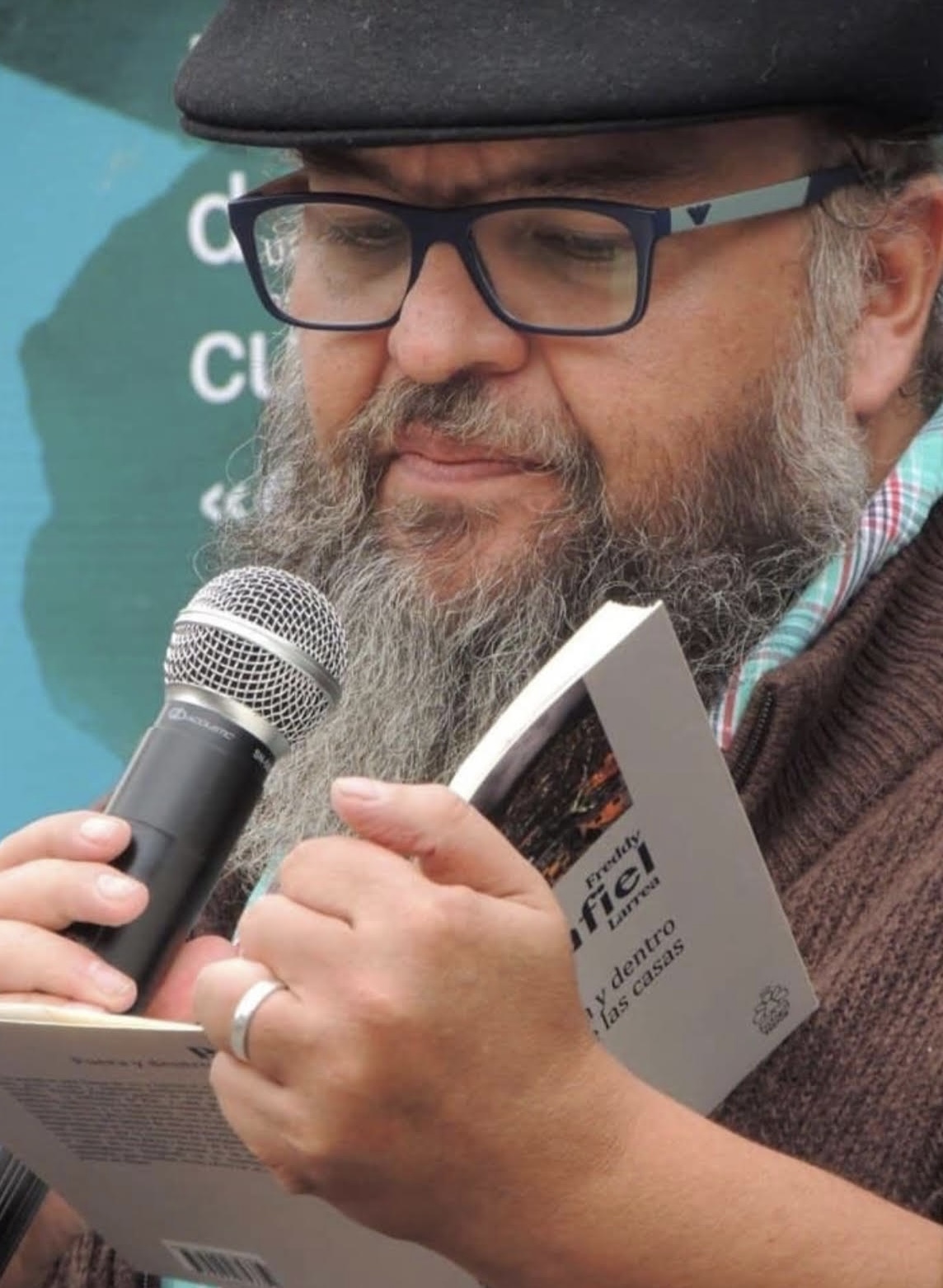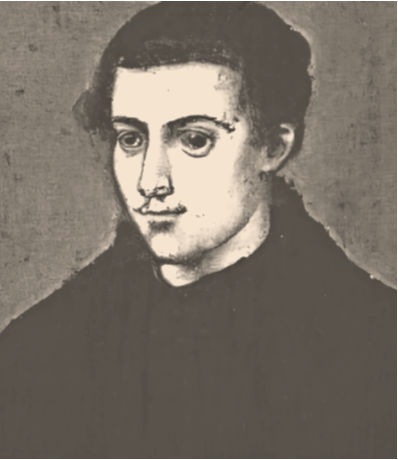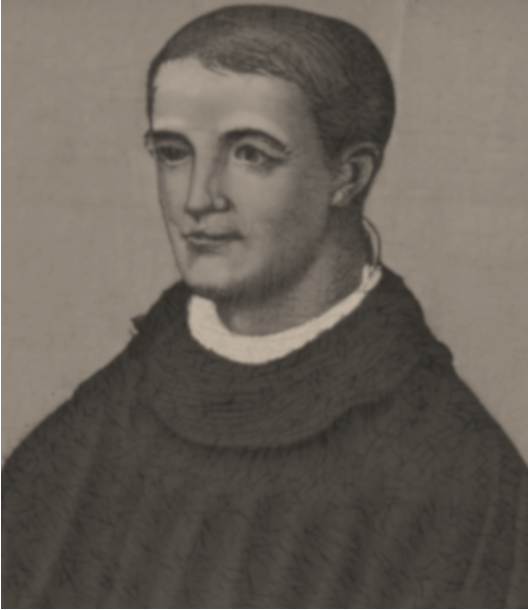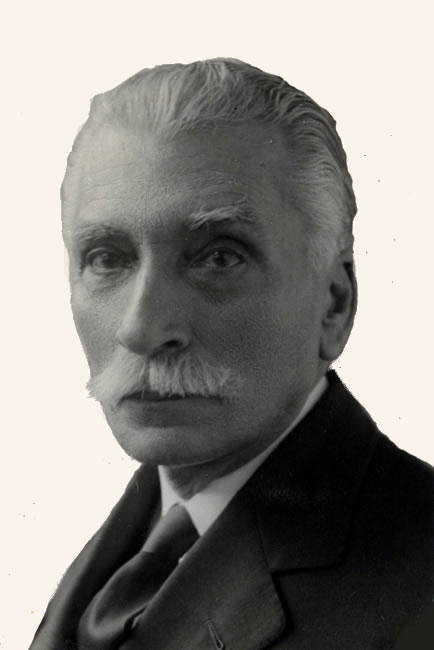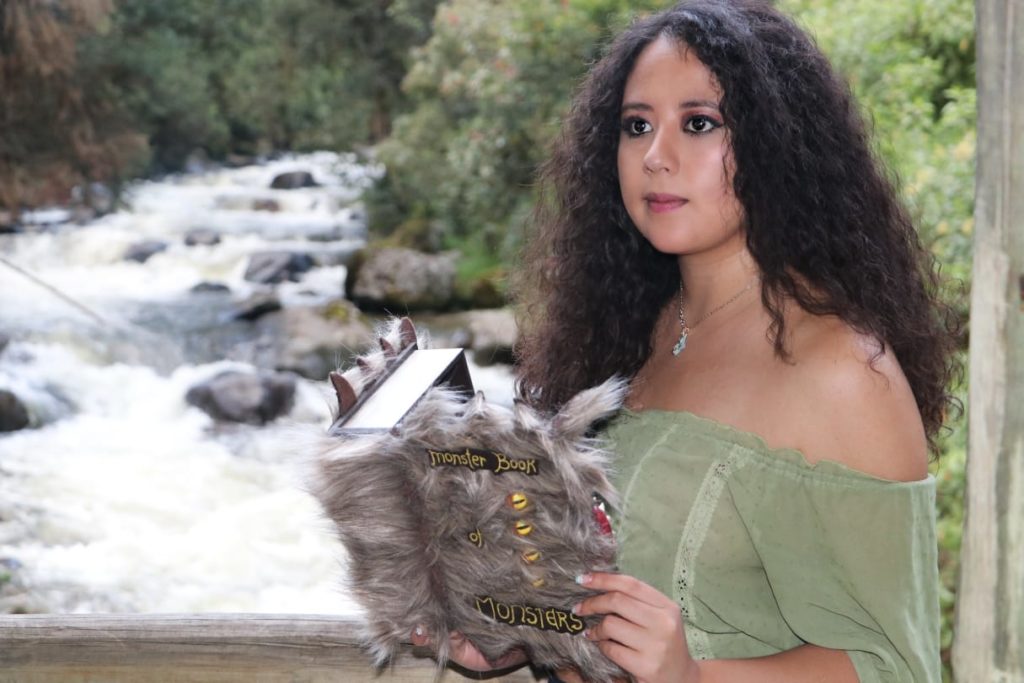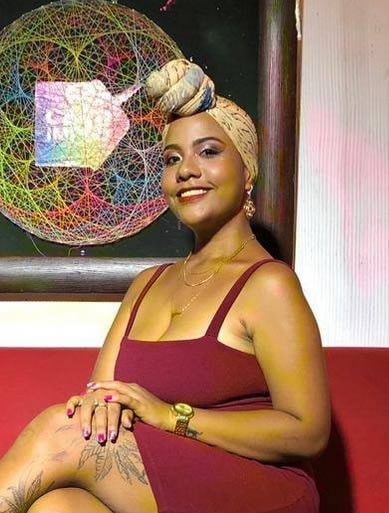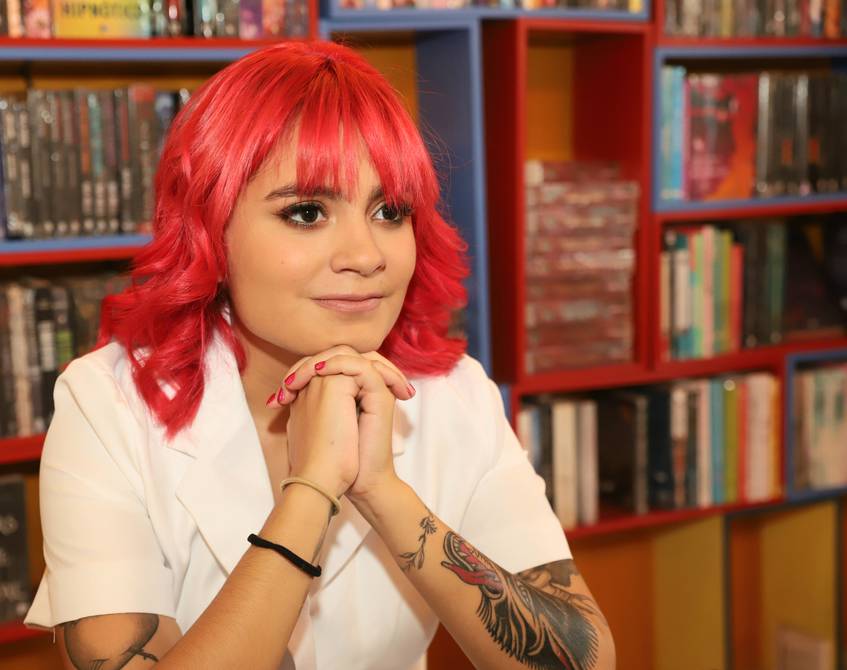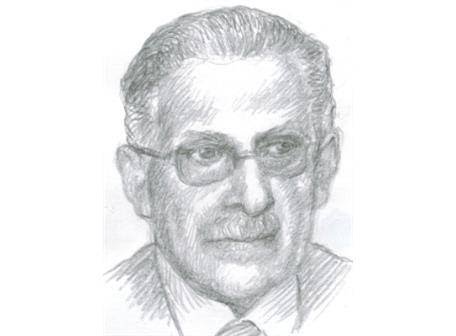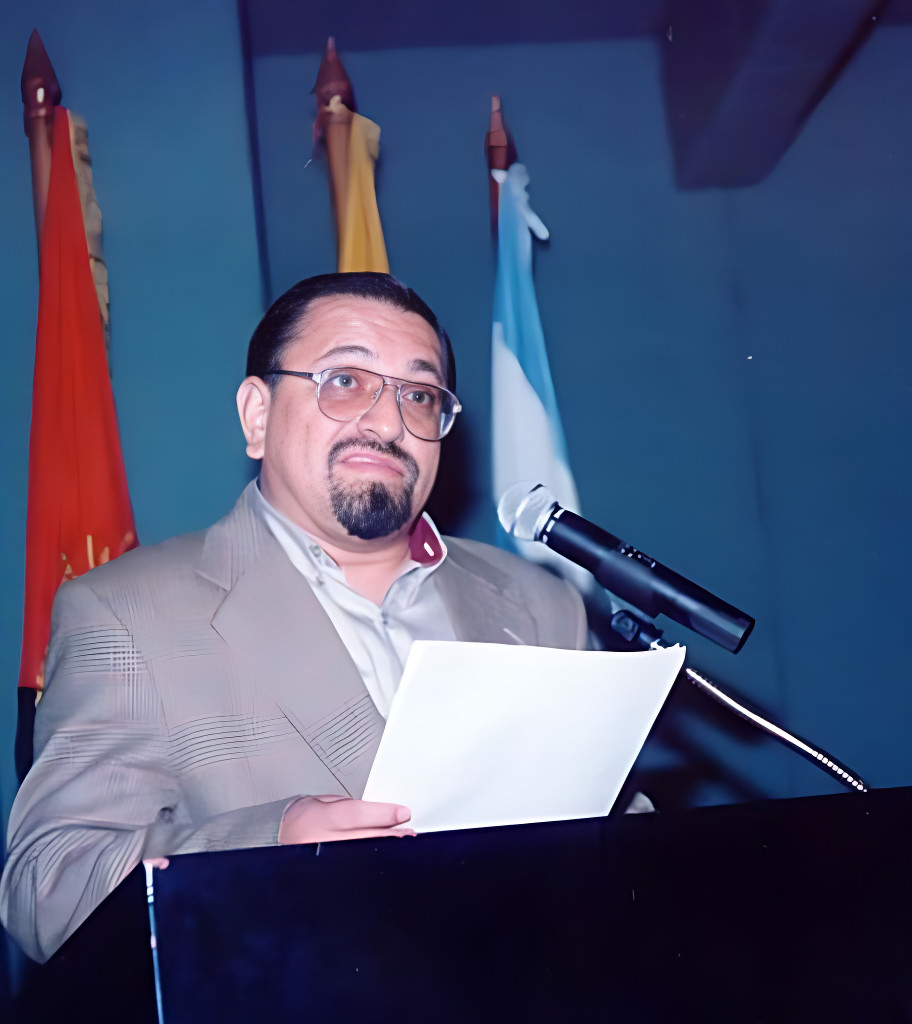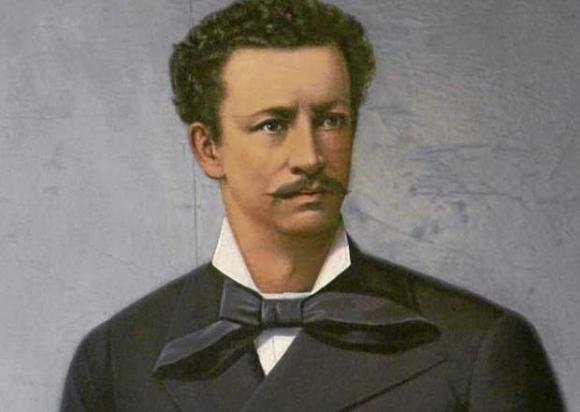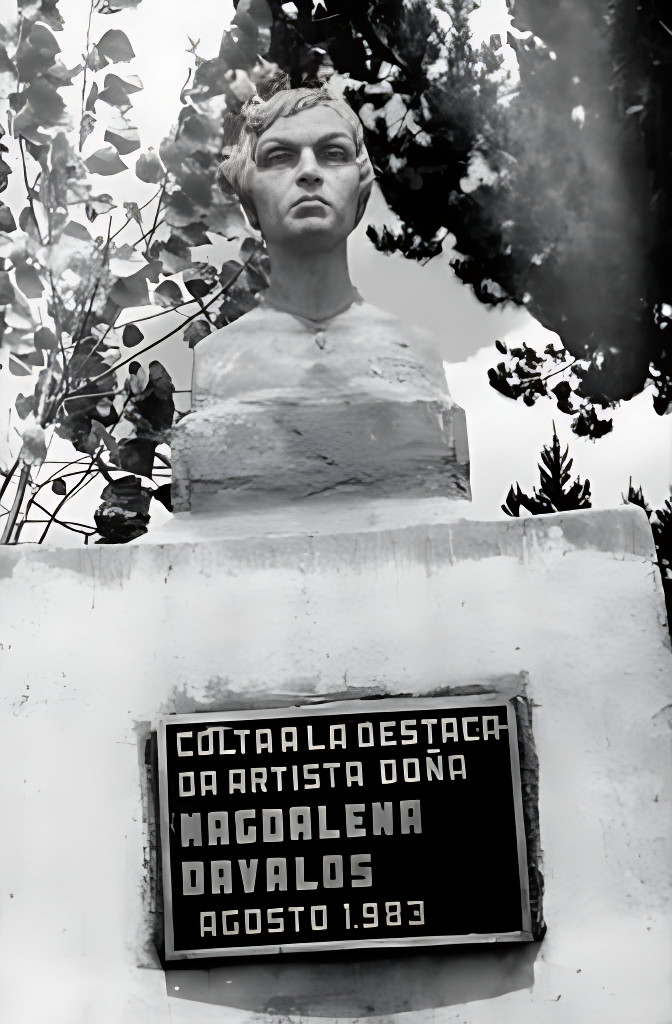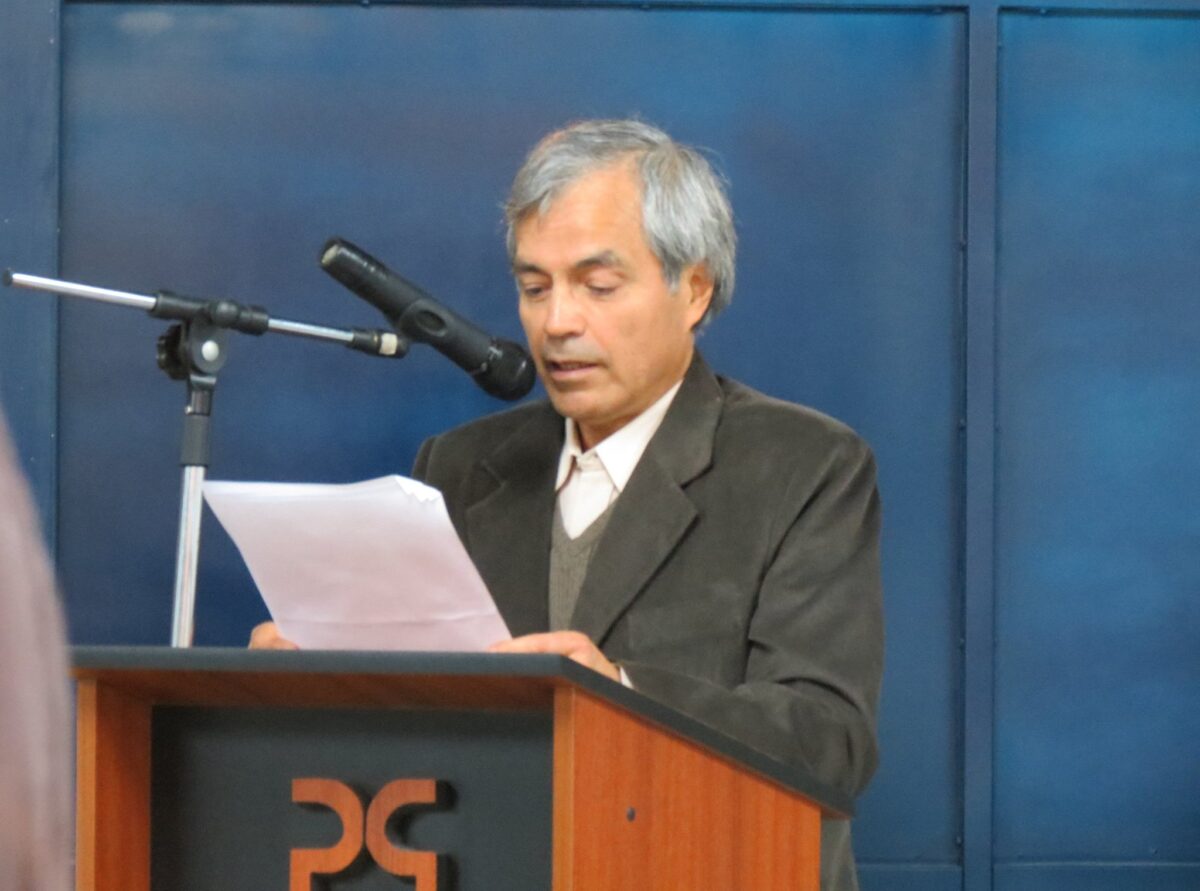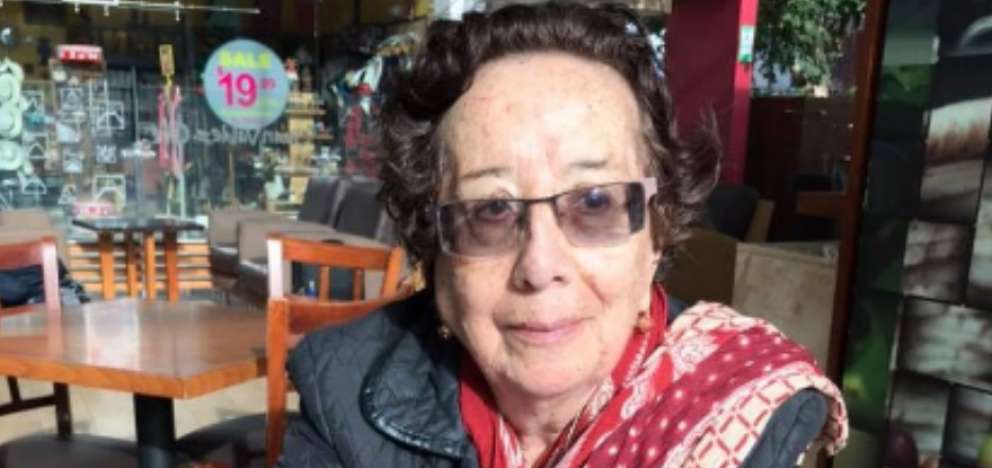Freddy Peñafiel Larrea (Quito, January 5, 1972) is an Ecuadorian poet, critic, radio host, educator, and public servant. He has published seven collections of poetry since 1992, which include compelling titles like “Del amar, de la mar” (1995), “Del asombro de las sombras” (1997), “Anzuelos” (2003), and “Presagios” (2009). His unique poetic voice earned him numerous accolades throughout his career. He received a special mention in the 1995 Hugo Mayo poetry contest, secured second place in the Jorge Carrera Andrade poetry biennial in 1996, and won first place in the “Escribir y Publicar” poetry contest in 1997. Not only do his verses grace the pages of his own collections, but they can also be found in numerous anthologies, marking him as a vital and vibrant voice in Ecuadorian poetry.
Continue reading “Freddy Peñafiel Larrea”Posts
José de Orozco
José de Orozco (Riobamba, March 18, 1733) was a renowned Jesuit priest and poet. Educated at the University of San Gregorio Magno in Quito, he joined the Society of Jesus in 1748 and devoted himself to both religious service and academic pursuits. However, the expulsion of the Jesuits from Spanish territories in 1767 marked a significant shift in his life. After resettling in Italy, Orozco turned to literature as a means of expressing his feelings of exile and nostalgia, most notably in his poem “Lamentos de la musa de Chimbaraso aflijida con las penas de su destierro,” a deeply nostalgic poem reflecting his longing for his homeland. Among his other significant works, “La Conquista de Menorca” stands out as a monumental epic poem, earning Orozco a place among the great poets of the 18th-century Spanish colonial period.
Continue reading “José de Orozco”Pedro Pablo Berroeta
Pedro Pablo Berroeta (Cuenca, June 29, 1737 – Seville, Spain, July 15, 1821) was an acclaimed poet, Jesuit, and missionary, who left a remarkable footprint in the literature of the 18th century. Berroeta became a key figure during the Real Audiencia of Quito and is well-remembered for his masterpieces “La Pasión de Cristo,” a poem of 1026 royal octaves, and “Coplones del Viejo.” Despite facing expulsion from the Jesuit order and having to continue his religious work as a secular priest, Berroeta’s indomitable spirit led him to create profound literary works. His poetry, characterized by its raw emotional depth and nostalgic resonance, significantly shaped what is known as Cuenca poetics. Even two centuries after his death, Berroeta’s contribution to the literary world continues to be celebrated and studied.
Continue reading “Pedro Pablo Berroeta”Alfredo Baquerizo Moreno
Alfredo Baquerizo Moreno (Guayaquil, September 28, 1859 – New York City, March 20, 1951) was a prominent Ecuadorian politician, author, and intellectual figure of the early 20th century. Baquerizo Moreno excelled in various fields throughout his life. He displayed his artistic talents through his poetry, influenced by Spanish author Gustavo Adolfo Bécquer, and his novels, which showcased his imaginative storytelling. Baquerizo Moreno’s career in politics was equally impressive, serving as the President of Ecuador from 1916 to 1920. During his presidency, he implemented progressive reforms and prioritized social justice, advocating for the abolition of debt imprisonment and improving labor conditions. Baquerizo Moreno’s lasting contributions to literature and his dedication to public service have secured his place in Ecuadorian history as a multifaceted and influential figure.
Continue reading “Alfredo Baquerizo Moreno”Carlos Carbo Viteri
Carlos Carbo Viteri (April 13, 1865 – August 13, 1922) was a distinguished Ecuadorian poet, translator, congressman, and diplomat, renowned for his substantial contributions to his country’s literature and politics. Influenced by classical Greek and Latin literature, his romantic poetry captured the nuances of everyday life, earning him recognition and acclaim. His poignant poem “A Guayaquil,” composed for the centennial birth anniversary of Vicente Rocafuerte, notably secured him the second prize in a 1883 poetry contest. He also translated foreign works, such as Alphonse de Lamartine’s “El Poeta Moribundo,” into Spanish, making them accessible to a wider audience. In his political career, Carbo Viteri served actively as a congressman while passionately advocating for conservative principles. His service extended to several important positions including the Secretary of the Guayas Governorate and the Municipal Syndic of Guayaquil. Additionally, he represented Ecuador internationally as its Chargé d’Affaires in Chile. His impactful work in both the literary and political spheres has left an enduring imprint on Ecuador’s cultural and political history.
Continue reading “Carlos Carbo Viteri”Paola Cando
Paola Cando Bermeo (Cuenca, January 25, 1995) is an Ecuadorian writer and poet. Her journey in literature began in 2012 when she published “Parchís,” a collection of several young authors from the city of Cuenca. Two years later, she was part of the poetic anthology “Nuevas Voces de la Poesía Cuencana,” presented at the XII Encounter on Ecuadorian Literature by the State University of Cuenca. In 2015, along with numerous Latin American authors, she was featured in the poetic anthology “90 revoluciones,” published by the independent publisher Mecánica Giratoria. 2017 saw her collaborate with the independent publisher Ninacuro Cartonera on another poetic anthology titled “Cirugía inflamable.” In 2020, her poem “Chendoaventuras” was selected to be featured in the book “Poemas sobre dos ciudades.” This book compiled the winning entries from the Azogues and Cuenca 2020 Poetry Prize Competition, as well as additional poems from the same competition, chosen by the jury.
Continue reading “Paola Cando”Sara Arana
Sara Arana, known as “La abogada del rap,” is a 25-year-old rapper, poet, and activist hailing from Guayaquil, Ecuador. Despite facing numerous challenges, including addiction and the tragic loss of her mother, she found solace and strength in the arts. Through her powerful and heartfelt music, poetry, and culinary talents, she has become a voice for empowerment and social change. Arana’s debut poetry book, “HipHop es vida” (2021), serves as a testament to her resilience and a celebration of the genre that has shaped her life. Arana’s experiences and personal journey showcase the transformative power of art and serve as an inspiration to others.
Continue reading “Sara Arana”Renatta Villamar
Renatta Villamar (Guayaquil, December 8, 2000) is an Ecuadorian poet. The youngest daughter of the former mayor of Guayaquil, Cynthia Viteri, Villamar has embarked on a unique journey of self-expression and exploration through literature and art. Born into a high-profile political family, Villamar defied traditional expectations and chose to chart her own path in life. An emerging writer and illustrator, she first gained recognition with her debut poetry collection, “Una flor en la tormenta” (“A Flower in the Storm”), first presented in the Guayaquil International Book Fair in 2021. Aged just 20 at the time of publication, Villamar’s work draws on personal experiences and emotions, reflecting her battles with mental health conditions, including depression and anxiety, and serves as a testament to her resilience. Her decision to work as a waitress, while simultaneously honing her craft as a writer, speaks to her humility and commitment to personal growth. As she continues her journey as an artist, Villamar has made appearances at international literary events, such as the Bogotá International Book Fair in 2022, further establishing her presence in the literary world.
Continue reading “Renatta Villamar”Lauro Dávila Echeverría
Lauro Dávila Echeverría (Pasaje, El Oro, August 18, 1885 – Guayaquil, December 23, 1968) was an Ecuadorian poet, playwright, songwriter, and teacher. Best known for writing the lyrics and music to Guayaquil de mis amores, a song that has become an anthem of the city of Guayaquil, Dávila composed 23 songs and authored several poetry collections, including Lira del alma and 21 estampas de la vida real. He was also a founding member and the first secretary general of the National Union of Musicians. Dávila’s contributions to Ecuadorian culture earned him numerous awards, including the Gold Medal from the Council of Guayaquil in 1945.
Continue reading “Lauro Dávila Echeverría”Carlos Calderón Chico
Carlos Calderón Chico (Guayaquil, June 14, 1953 – January 4, 2013) was an influential Ecuadorian historian, writer, journalist, cultural manager, and bibliophile. He pursued a degree in Literature and Spanish from the University of Guayaquil. He emerged as an acclaimed educator, teaching History and Ecuadorian Literature in various Guayaquil schools. Calderón Chico’s contributions extended beyond academia, as he became a crucial figure in Ecuador’s cultural and literary scene. He participated in the management of cultural supplements and magazines, facilitated cultural debates, and engaged with prominent writers, painters, and politicians. As a testament to his dedication, he received the First Class Cultural Merit Decoration from the National Government and was declared Journalist of the Year by the Guayaquil Association of Journalists. His career also spanned overseeing the Ecuadorian Society of Writers, coordinating for Revista Diners, and conducting important research for the Historical Archive of Guayas. Calderón Chico’s writing portfolio boasts numerous publications, interviews, and critical analyses, which have played an integral role in shaping Ecuadorian literature and cultural history.
Continue reading “Carlos Calderón Chico”Juan Montalvo
Juan Montalvo, born Juan María Montalvo y Fiallos (Ambato, Ecuador, April 13, 1832 – Paris, France, January 17, 1889) was an influential Ecuadorian author, essayist, and formidable polemicist whose writings had a significant impact on the political landscape of his time. Known for his notable works such as “Las Catilinarias” (1880) and “Siete Tratados” (1882), Montalvo exhibited a fiery, unapologetic style, often challenging and criticizing the political status quo. As a political liberal, his beliefs were characterized by anti-clericalism and a fierce opposition to the authoritarian regimes of Gabriel García Moreno and Ignacio de Veintemilla. Despite facing exile multiple times, his penetrating critiques and commitment to democratic principles left a lasting legacy in Ecuador and beyond. Montalvo’s audacious spirit, combined with his eloquent prose, positioned him as a key figure in Latin American literature, while his life and works continue to symbolize the power of the written word as a tool for political change.
Continue reading “Juan Montalvo”José Paul Aguilar
José Paul Aguilar (Quito, 1965) is an Ecuadorian author, architect, and musician who began his writing career as a poet. He began writing at the age of fifteen, with his first poetry book published at twenty-two. Two of his notable works include “TŪTUM,” a compilation of poems and stories, and “Canciones de Otoño,” a collection of poems written since 1982. In 2023, he released his debut novel, “Un sol se me escondió” (A Sun Hid From Me). The novel received a warm reception and was showcased at the Madrid Book Fair. Interestingly, Aguilar is a descendent of Juan Montalvo, a renowned Latin American writer, which has been a significant source of inspiration for him.
Continue reading “José Paul Aguilar”Magdalena Dávalos y Maldonado
Magdalena Dávalos y Maldonado (Chambo or Colta, 1725 – Guano, January 8, 1806) was an Ecuadorian scholar, literary figure, and talented artist in both painting and music, active during Ecuador’s Spanish colonial era. Her notable accomplishments are underscored by her distinction as the sole female member of the Escuela de la Concordia, also known as the Patriotic Society of the Friends of the Country of Quito (Sociedad Patriótica de Amigos del País de Quito). This influential literary society, founded by Eugenio Espejo, played a pivotal role in promoting Enlightenment thought and nurturing nationalistic sentiments in Spanish South America. Magdalena’s inclusion in this esteemed society highlights her exceptional intellect, education, and literary prowess, defying prevailing gender norms and leaving an enduring impact on Ecuador’s intellectual and cultural landscape. Today, her legacy is honored in Riobamba, where the city has dedicated one of its most significant schools and a small street in her memory, acknowledging her profound contributions to the arts and intellectual development of the region.
Continue reading “Magdalena Dávalos y Maldonado”Oswaldo Encalada Vásquez
Oswaldo Encalada Vásquez (Cañar, 1955) is a philologist, writer of both fiction and children’s literature, and an academic. His substantial contributions to the field of linguistics and literature earned him the prestigious “Fray Vicente Solano” award, conferred by the Municipality of Cuenca on October 18, 2004. This recognition underscores his significant influence and standing in Ecuador’s intellectual and cultural domains. Throughout his career, Vásquez has served in notable positions, including professorships at the Universidad de Azuay and the Colegio Manuela Garaicoa de Calderón. Additionally, he is a distinguished member of the Ecuadorian Academy of Language, further testament to his respected status in the academic world.
Continue reading “Oswaldo Encalada Vásquez”Raquel Rodas Morales
Raquel Rodas Morales (Paute, Azuay, June 1940-Quito, November 1, 2018) was an Ecuadorian writer, historian, and feminist. She dedicated her life to teaching, studying philosophy, and conducting research from a feminist perspective on the contributions of influential women in the history of Ecuador, such as Tránsito Amaguaña, Dolores Cacuango, and María Luisa Gómez de la Torre. Raquel Rodas authored numerous books dedicated to women’s history and the feminist movement. Her extensive research and writings have significantly contributed to the understanding of women’s experiences, the impact of patriarchy, and the struggles faced by women throughout history. The Metropolitan Council of Quito awarded her the Mention of Honor for Relevant Services to the City.
Continue reading “Raquel Rodas Morales”
